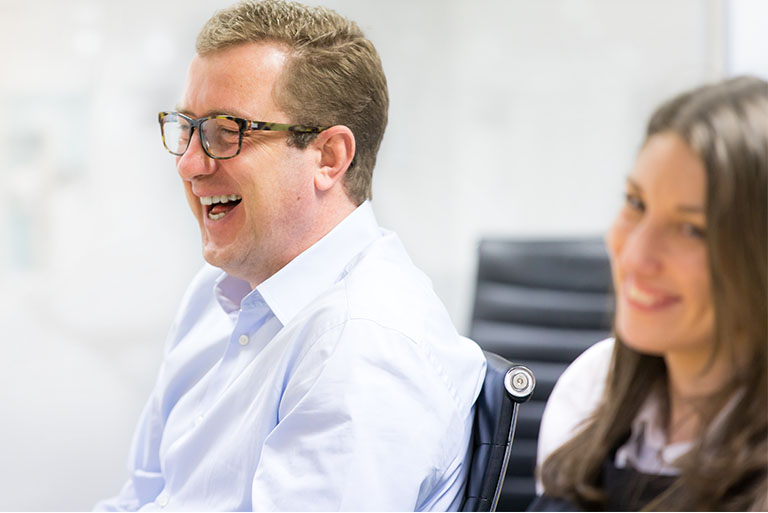
After more than 20 years of working in business and studying human behaviour, we’ve reached the conclusion that one of the most important things a leader can do is ‘feel good first’.
We all know only too well the consequences of not feeling good and the impact this can have on our immediate and long-term success, performance, health and wellbeing.
The desire to feel good is a universal human need. It’s an ambition and goal which we all share because when we feel good, we thrive at work and at home, perform at our best and generate success.
But to make others feel good we must feel good ourselves first – and as a leader, how we feel is contagious. When we feel bad, stressed and negative it seeps out of every pore like a fast spreading virus, leading to organisational toxicity and wide scale misery.
In my life and yours, feeling good is not just a need or right, it is our number one priority.
We’ve tried and tested lots of simple and practical feel good strategies that leaders can use to develop feel good habits, and make others feel great too. Here are just a few to consider:
- They give themselves permission to feel good
If we don’t grant ourselves permission to feel good, it simply won’t happen. So, this is the very first thing that needs our attention. Some of us don’t feel we deserve it, constantly putting the feelings of others first or just not knowing how to focus on ourselves. However, we all deserve to feel good and need to prioritise this over anything else. Because if we don’t give ourselves permission, then who will?
- They notice how they feel
Great leaders are in flow with their emotions, they understand and are constantly monitoring them to help prioritise feeling good. This knowledge and self-awareness allows them to make choices and respond to their feelings in a way that doesn’t negatively impact on themselves or others. So many of us spend our lives not feeling good – feeling stressed, overwhelmed and low energy has become the norm. If we don’t observe and pay attention to how we feel, then how on earth can we do anything about it?
Having self-awareness in the moment can be considered an emotional art form. It takes time and attention. Being able to notice how we feel moment by moment, making informed choices about what we do about it, is self-awareness that forms the foundations to our being and our growth as great leaders.
- They have good boundaries
Leaders that feel good have good boundaries, knowing what they can process and tolerate as well as what they can’t. Leaders who have great boundaries know what’s good for them and what’s not. They’re able to apply boundaries to protect themselves, to ensure they only bring out the best in them and others. Having boundaries helps us keep us safe and thriving, preventing our fear and anger response. A boundary can be as simple as saying “no” to something or someone, or setting clear boundaries around your time and priorities. When you say no to someone else, you can say yes to yourself!
- They’re Grateful
Leaders that ooze that ‘feel good feeling’ are grateful. They look at what they have and not what they haven’t. Alongside their success, passion and vision for the future, they never forget the people who helped them get there – appreciating those around them and taking time to say “thank you”. The highest of achievers have relied on teams to reach their level of success and know the value people around them bring. By knowing and valuing what they have, leaders who feel good can bask in everyone’s happiness, not just their own.
- They speak their truth
Feel good leaders are honest, have integrity and speak their truth. Being truthful is the only way to be authentic, and authenticity means being who we really are. Such leaders have the courage to speak out when others might not – never apologising for giving their honest opinion, particularly when it’s about how they feel. These truthful foundations help leaders shine in situations of conflict and difficulty. The trick is to understand what the truth is for you, first. Keep digging deep and asking the question, “what is the truth for me?” Once you feel and understand it, you can confidently say it.
Start switching to feel good habits. Habits don’t have to take long to change; we just need the desire and a bit of practise. Give these tips a try and see how you get on.
Please share your thoughts with us – we love to hear from you – as we are only reflections of one another and we learn together.







